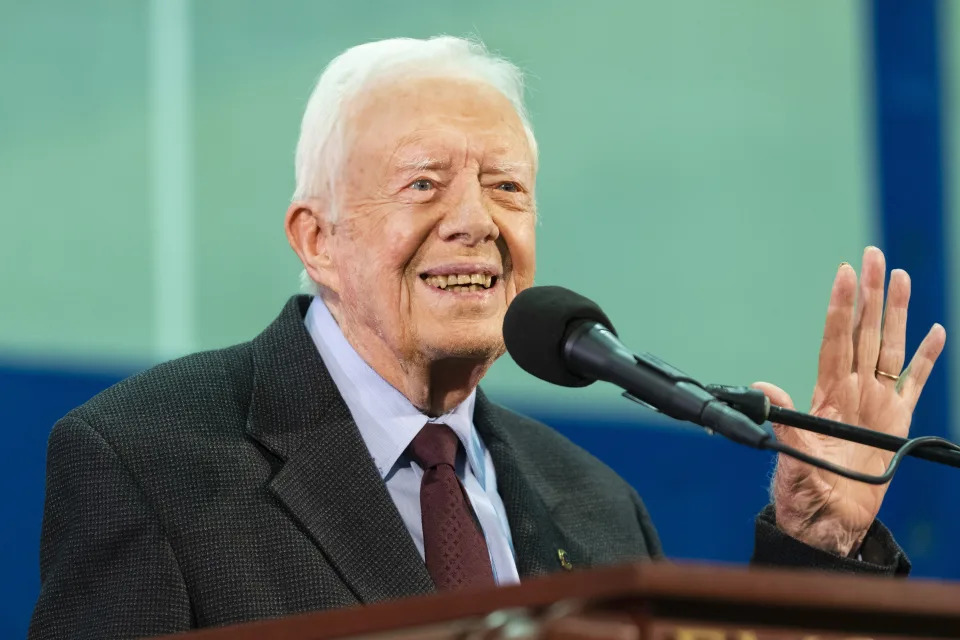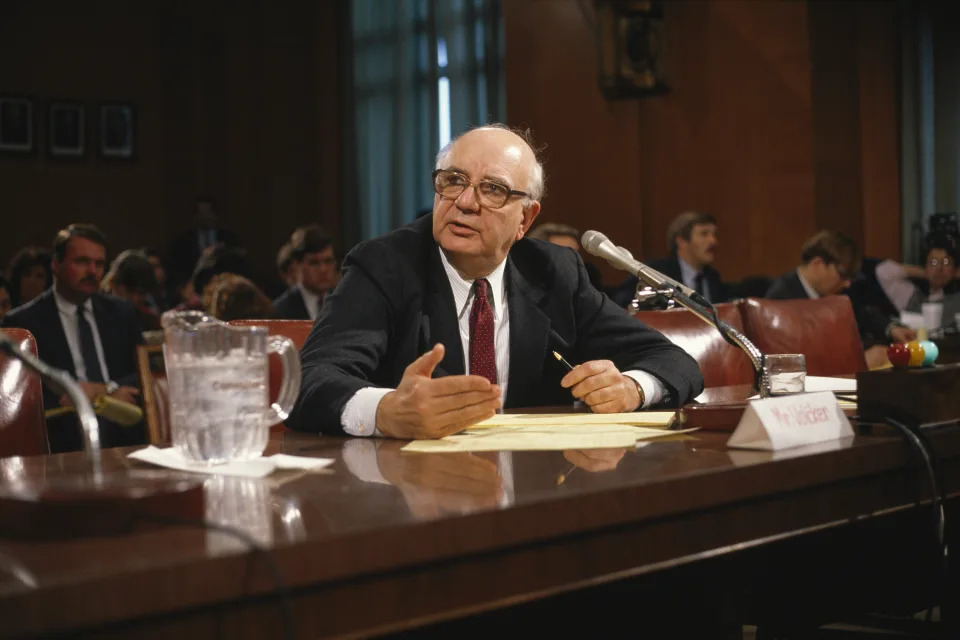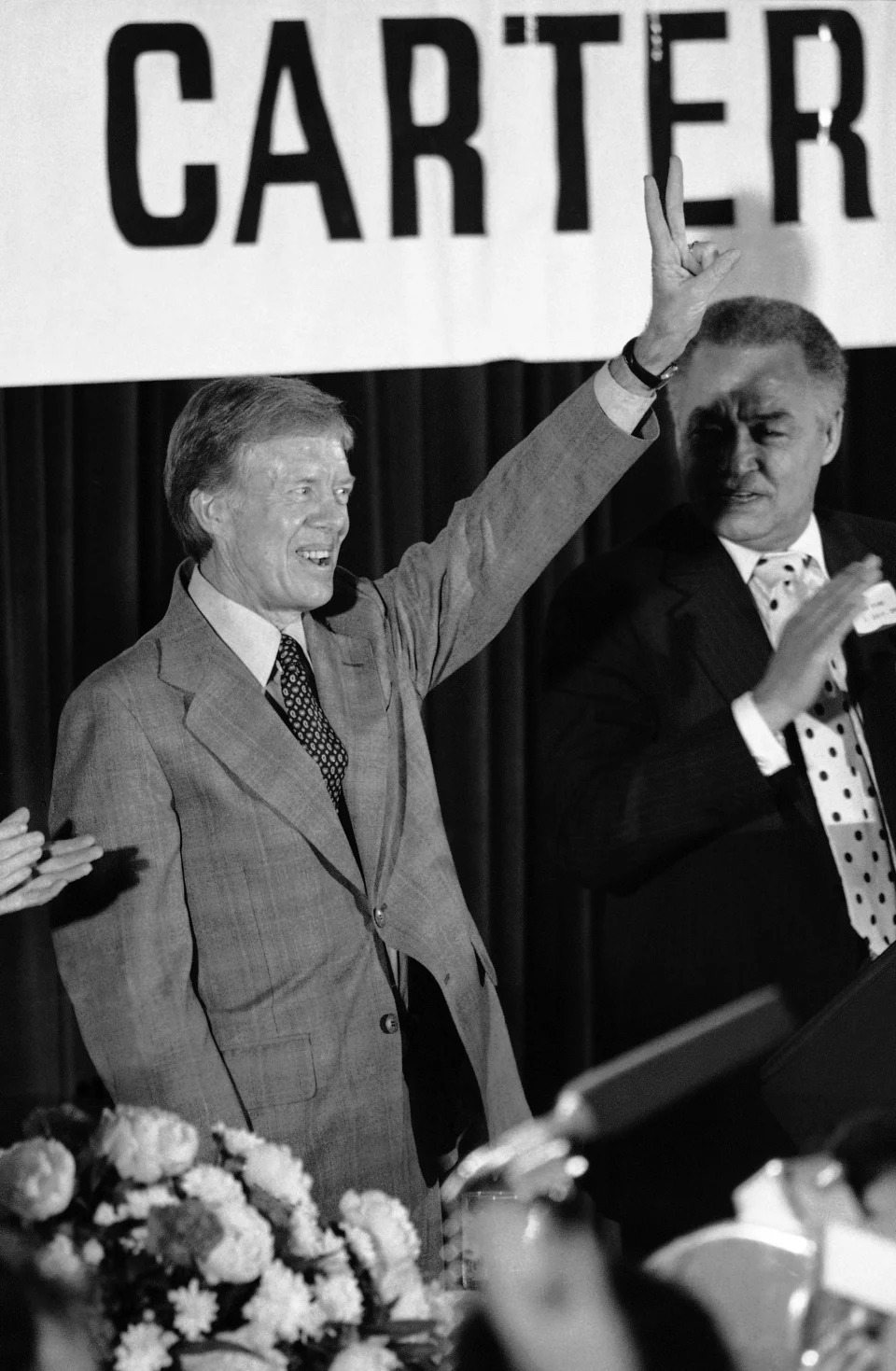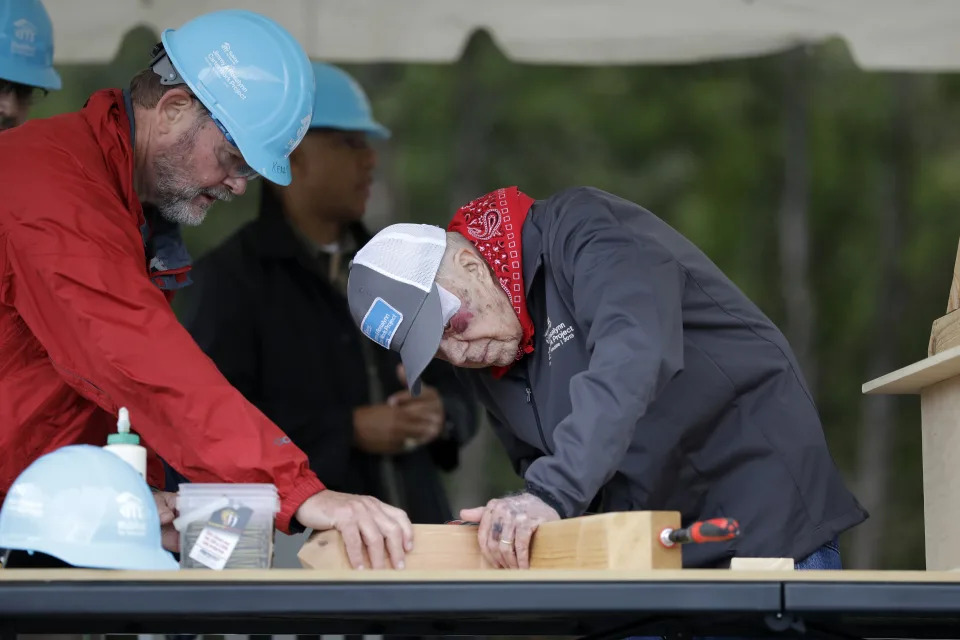Jimmy Carter, who led the country during high unemployment and 'stagflation,' is dead at 100
Former President Jimmy Carter died Sunday at the age of 100 at his home in Plains, Georgia, the Carter Center said. Carter served one term as the 37th president of the United States from 1977 to 1981 but lived longer than any other US president.
Carter led the country during a tumultuous time, as the economy struggled while tensions thickened abroad in the Middle East. Carter became known for his humanitarian approach to the job, and he was also responsible for the creation of the Departments of Energy and Education.
When the Democratic politician from Georgia took office in the late 1970s, the country faced an energy crisis and a deteriorating economy. In a famous speech on April 18, 1977, Carter compared the energy crisis to "the moral equivalent of war" and predicted that money spent on imported oil would vastly increase by 1985. While the US was facing an energy shortage in 1977, Carter delivered his well-known fireside speech about conservation.

"All of us must learn to waste less energy," he said while sporting a knitted sweater. "Simply by keeping our thermostats, for instance, at 65 degrees in the daytime and 55 degrees at night, we could save half the current shortage of natural gas. If we learn to live thrifty and remember the importance of helping our neighbors, then we can find ways to adjust."
On June 20, 1979, Carter had 32 solar water heating panels installed on the roof of the West Wing while his administration introduced tax credits for solar power.
Carter also inherited an economy experiencing what was widely dubbed “ stagflation ,” featuring high inflation and little to no growth. In 1973, former President Richard Nixon ended the gold standard, which decreased the value of the dollar in foreign exchange markets. With a rise in import prices came inflation and, in turn, unemployment. The joblessness rate fluctuated between 5.7% and 6% during Carter's presidency until 1980, when it jumped up to 7.8% amid recession. When Carter left office in 1981, it sat at 7.4%.

Carter’s solution was to name Paul Volcker as chair of the Federal Reserve. Volcker sought to end inflation by raising interest rates.
"There are no easy answers — we will not solve inflation by increasing unemployment," Carter told the American Society of Newspaper Editors in a speech on April 11, 1978. "We will not impose wage and price controls. We will work with measures that avoid both these extremes. ... It is a myth that the government itself can stop inflation. Success or failure in this overall effort will be largely determined by the actions of the private sector of our economy."
The Consumer Price Index peaked at nearly 15% annual growth in 1980.
Presidency
James Earl Carter Jr. was born on October 1, 1924, in Plains, Georgia.
Carter graduated from the US Naval Academy in 1946 and served in the US Navy until 1961 when he left with the rank of lieutenant. He began running his family’s peanut farm in the mid-1950s and was elected to the Georgia State Senate in 1963 before winning the state's governorship in 1970.
Civil rights became a major platform for Carter amid racial tensions in Georgia. In his inauguration speech, Carter said: "The time of racial discrimination is over. … No poor, rural, weak, or Black person should ever have to bear the additional burden of being deprived of the opportunity for an education, a job, or simple justice."

After being elected president in 1976, Carter created the Department of Education, partly to enforce civil rights and also as a means to increase accountability for education programs on a federal level.
Carter's diplomatic efforts led to several foreign policy achievements. He helped foster the Camp David Accords between Egypt and Israel’s presidents, brokered the Panama Canal treaties, oversaw the SALT II nuclear disarmament treaty with the Soviet Union, and opened relations between the US and China.
However, then came the Iranian Hostage Crisis in November 1979, in which 52 American diplomats and citizens were taken hostage at the US Embassy in Tehran. The hostages were not released until Carter’s last day in office in January 1981, despite numerous negotiation attempts by the Carter administration and a failed rescue mission, Operation Eagle Claw. The hostage crisis — along with increased inflation — weighed on Carter's approval ratings and contributed to Carter’s loss to Ronald Reagan in 1980.
'It was impossible not to like Jimmy Carter'
Despite suffering a few falls and illnesses in his later years, Carter remained active in his philanthropic efforts.
He was involved in Habitat for Humanity, participating in building projects well into his 90s, and wrote 34 books, including his memoir, "A Full Life: Reflections at 90," and a book on the Middle East, "We Can Have Peace in the Holy Land: A Plan That Will Work."
When he and his wife, Rosalynn Carter, cowrote their memoir, "Everything to Gain: Making the Most of the Rest of Your Life," the two famously spoke of the writing experience as challenging for their marriage.
"One thing I hope people will learn from the book is not ever to try to write a book together, unless they want to terminate a marriage," Carter told the LA Times in 1987, adding: "We were incompatible authors."
The two were married until Rosalynn's death on Nov. 19, 2023.

Carter also founded the Carter Center at Emory University in Atlanta, Georgia, which says its mission is "devoted to issues relating to democracy and human rights." His work with the center largely contributed to him earning the Nobel Peace Prize in 2002.
“It was impossible not to like Jimmy Carter,” former UK Prime Minister Margaret Thatcher wrote in her memoir , “The Downing Street Years.” “He was a deeply committed Christian and a man of obvious sincerity. He was also a man of marked intellectual ability with a grasp, rare among politicians, of science and the scientific method.”
In January 2021, Carter missed his first inauguration since his own, when President Joe Biden took the oath of office, as the former president stayed close to home amid the COVID-19 pandemic.
Two years later, it was announced that the 99-year-old Carter had entered hospice care.
Carter is survived by his four children, 11 grandchildren, and 14 great-grandchildren.
—
Adriana Belmonte is a reporter and editor covering politics and healthcare policy for Yahoo Finance. You can follow her on Twitter @adrianambells
.




